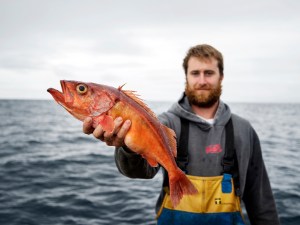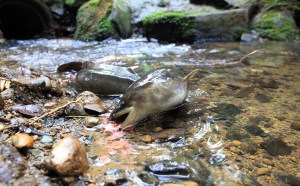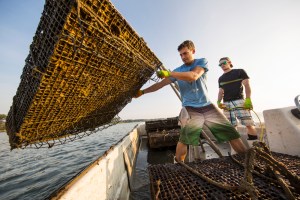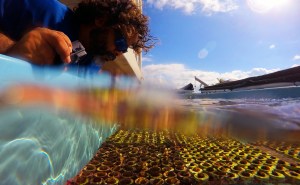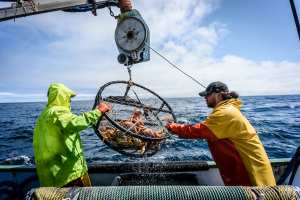Discover stories in Oceans
Seaweed as Sustainable Livelihood
Seaweed farming can provide livelihoods for rural and indigenous women in Indonesia. How can this aquaculture be practiced sustainably?
Collective Fishing Agreements Benefit Both Groundfish and Fishermen
Collective management charts a new path for California groundfish.
Time to Bust the Silos: Coral Reefs, Human Health + Sewage Pollution
The human health and marine conservation sectors are fighting the same root causes and effects of poor water quality. They’re just fighting them separately. New science says the opportunities for collaboration are there and it's past time to bridge the gaps.
There’s a Plague in Our Oceans. Can Ecosystem Services Help?
Big disease outbreaks are making our ocean biota sick, from corals with spots and halos to starfish melting away
Meet the Mysterious Freshwater Eels of New Zealand
Meet the eels of New Zealand… they can climb ladders, live for 100 years, and migrate thousands of miles to an unknown spawning ground.
In Pictures: Saving Papua New Guinea’s Sea Cucumbers
View photographs from our reporter’s journey to Manus, where local communities are taking sustainable sea cucumber management into their own hands.
Sustainable Sea Cucumbers: Saving the “Gold Bars” of the Ocean
In Papua New Guinea, a tribal network is taking sustainable management of sea cucumber fisheries into their own hands.
Aquaculture Could Be Conservation’s Secret Weapon
Aquaculture has vast potential as a tool for conservation, providing food for people while benefiting the environment.
The Bizarre and Disturbing Life of Sea Cucumbers
Sea cucumbers are absolutely fascinating, despite an utter lack of charisma.
River Pollution Threatens Australia’s Great Barrier Reef
Coral bleaching dominates headlines about Australia’s Great Barrier Reef, but perhaps the most dangerous threat lurks on land, far away from the reef itself.
Recovery: New Hope for Caribbean Coral
An effort to restore coral reefs finds its hope in fragments. Literally.
Managing Fisheries in the Face of Climate Change
Climate change is impacting fisheries, but regulating agencies are ill-equipped to respond to the challenges.

